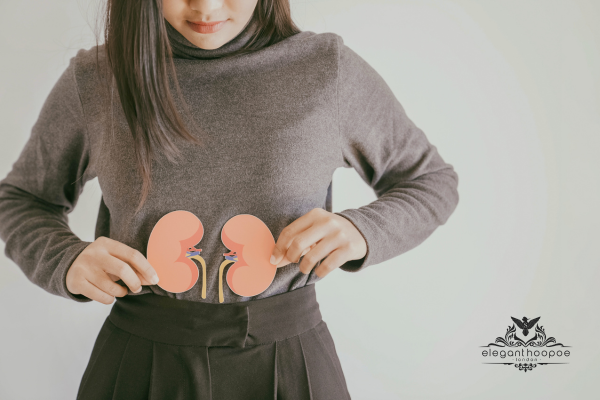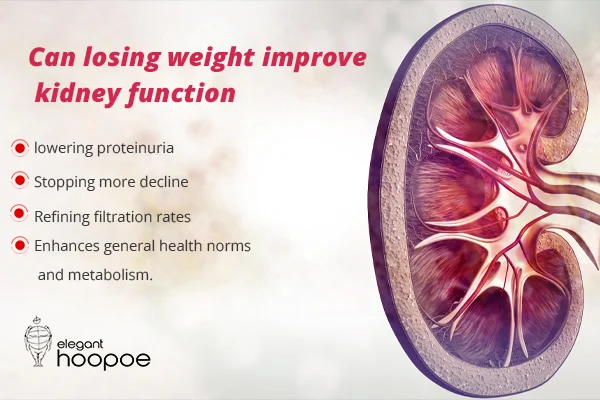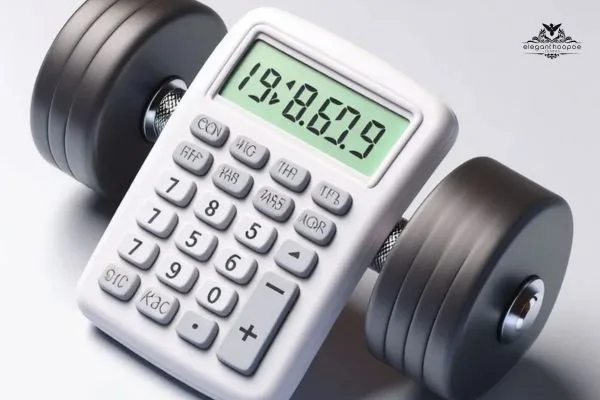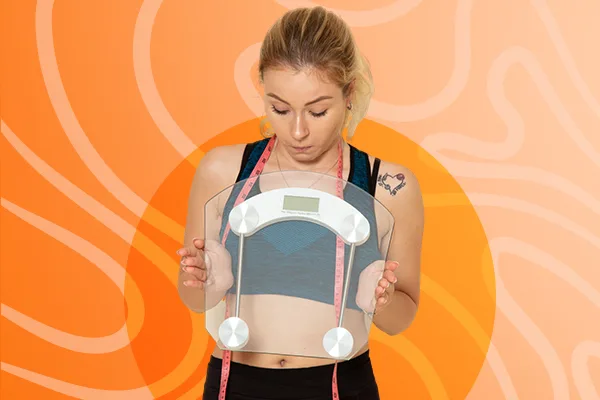Can Weight Loss Improve Kidney Disease? Safe Strategies & Risks
Kidney disease weight loss can be beneficial but must be managed carefully to avoid health risks. Key points:
- Early-stage CKD: Weight loss can improve kidney function and reduce strain.
- Later-stage CKD: Focus shifts to maintaining muscle mass and preventing malnutrition.
- Risks of rapid weight loss: Can increase creatinine levels, dehydrate the kidneys, and raise kidney stone risk.
- Safe weight loss tips: Work with a doctor, eat a balanced diet, and avoid extreme weight-loss programs.
A well-managed approach can support kidney health, but losing weight too quickly can do more harm than good.
For people with kidney disease weight loss may help reduce the risk of further kidney damage and improve overall health. A healthy weight can help control blood pressure and blood sugar levels, which are crucial factors in managing kidney disease. However, it is important for people with kidney disease to approach weight loss carefully, as certain diets and rapid weight loss can strain the kidneys
Weight loss and its impact on blood creatinine levels
Creatinine is a waste product made by muscle metabolism that has a significant effect on kidney health. You can actually check your kidney health (assess kidney function) by measuring creatinine.
So, are there any links between kidneys and weight loss and creatinine levels? The short answer is While losing weight, changes in muscle mass can affect serum creatinine levels. Let’s describe it more by the below example:
Intentional Weight Lose:
Studies show that losing weight on purpose doesn’t have a big effect on some measures of kidney function in the short term for overweight people with good kidney function.
Significant Weight Loss (considerable fat reduction):
When you lose a lot of weight like after surgery to lose weight, your muscle mass and a substance called plasma creatinine can go down. The amount of creatinine in the blood may rise, which can increase eGFR. This could make it look like the kidneys are working better than they are.
Weight loss challenges across stages 1-5 of kidney disease

At different stages of chronic kidney disease (CKD), losing weight can have different challenges. You must know about these challenges in detail to deal with them correctly.
Please keep in mind that weight loss in CKD patients improves early-stage CKD renal function, particularly for overweight or obese individuals. Later on, though, the primary emphasis should usually be on keeping patients well and preventing hunger rather than decreasing weight.
So, it is extremely important to collaborate with doctors to manage your weight loss. Any efforts to lose weight should be closely monitored to ensure they don’t harm the kidneys or your health in general.
Kidney Disease Weight Loss Stages 1 and 2
- Keeping a healthy diet while taking care of other health problems, like diabetes or high blood pressure, may have made kidney damage worse.
- They are finding the right balance between limiting calories and getting enough nutrients to help kidneys work better.
- Making changes to your living (lifestyle) to stop kidney damage from getting worse.
CKD Stage 3 in Kidney Disease Weight Loss
As kidney function slowly drops in stage 3 of kidney disease, everything gets harder for you to lose weight:
- There is a higher risk of malnutrition because of changes in metabolism and limits on what can be eaten.
- You need to carefully control how much protein you eat. You need enough to keep your muscle mass but not so much that it strains your kidneys.
- Sodium, potassium, and magnesium are nutrients that can change the body’s ability to lose weight. They do this by affecting things like fluid balance and metabolism.
Stage 4 CKD Kidney Disease Weight Loss
At this point, renal damage worsens, which increases your difficulty in lowering weight.
- More rigorous guidelines on what you may and cannot consume will complicate your access to a nutritious diet.
- More likely to lose strength and neglect to eat enough calories.
- Possible retention of fluids changing weight measurements.
At CKD stage 4, nephrologists and dietitians must monitor the patient closely to ensure that the person loses weight safely.
CKD Stage 5:
Unfortunately, at this stage of Kidney Disease Weight Loss, Managing weight be very complex, and honestly, things get tough to control your weight:
- At stage 5, Dialysis or a kidney donation may be needed, which would have a big effect on the person’s metabolism and nutritional needs.
- There is a high chance of losing protein and energy, which makes weight loss on purpose possibly dangerous.
- Problems with fluid balance can significantly affect weight, so you need to manage it carefully.
- Focus often changes from losing weight to ensuring you get enough food and don’t lose muscle.

Rapid weight loss and its effects on kidney health:
As we said, Losing weight can be good for your health and kidney function, especially if you are overweight or fat, But not in every situation and in a hurry! Despite reducing weight for your health, how and speed you lose weight are very important.
You should avoid extreme or rapid weight loss programs, especially if you have kidney problems. These programs can adversely affect your blood pressure and stomach, and guess what? By doing so, you harm your kidneys more and more!
- An acute kidney injury is much more likely to happen when you lose weight quickly, especially if you do a lot of high-intensity exercise at the same time. This happens to people who play fighting sports and are trying to lose weight quickly.
- Studies have shown that urine nitrogen, uric acid, and blood creatinine levels can increase significantly after losing weight quickly. These higher markers suggest that the kidneys are under more stress and that their ability to work may worsen.
- Dehydration is a part of many quick weight loss plans and can be especially bad for kidney health. As you know, your kidneys need water for better function. Dehydration, even mild dehydration, can make kidney illness worse.
- People who lose much weight quickly are also more likely to get kidney stones. This is probably because losing weight quickly changes the makeup of urine.
Although dropping a lot of weight immediately affects the kidneys in a frightening way, there is also evidence that changes in body mass over time may increase or decrease renal function rapidly, even in those whose kidneys function normally to start with.
How does weight loss medication influence kidney function?

We do not want to talk about specific medications; it is just about their considerable influence on kidney health and function. Generally, some drugs used to lose weight may help protect kidney function by reducing kidney workload. In contrast, others may have bad side effects, such as causing dehydration or altering electrolyte balance.
For example, did you know that some weight-loss medicines can protect the kidneys of obese patients with heart disease (by reducing the strain on the kidneys)? To describe this (to understand how these medications might affect you personally before starting any treatment), we recommend talking to your kidney specialist before any general idea.
Can losing weight improve kidney function

The direct answer to the impact of Kidney Disease Weight Loss is yes, but the method of weight loss is essential; for example, losing weight fast can harm your kidneys instead of improving their function!
Simply put, weight loss can help in different ways but may not immediately increase kidney function. Some of these ways are:
- lowering proteinuria
- Stopping more decline
- Refining filtration rates
- Enhances general health norms and metabolism.
Overall, a well-managed weight loss plan can positively impact kidney health.
Related article: Best weight loss clinic
kidneys and weight loss
If we want to discuss specific kidney problems and their impact on weight loss, kidney stones may be a typical problem for many people! Is there a special link between kidneys and weight loss?
If you are overweight, you are more likely to get kidney stones. Losing weight can help lower these risks. A high body mass index (BMI) and metabolic syndrome make it more likely that you will get kidney stones because of things like more calcium oxalate in your pee.
Losing weight, primarily through low-calorie meals, can help lower the risk of kidney stones by changing the heart and metabolism risk profile and reducing the amount of stone-forming chemicals excreted in the urine.
Eating a variety of meat and now not enough carbs can boost the threat of getting kidney stones. This is because it makes the pee extra acidic, which could result in kidney stones forming.
So, properly balanced food full of vegetables, greens, and entire grains, like the Mediterranean or DASH diets, may additionally assist you in avoiding kidney stones and losing weight correctly.

Impact of Weight Loss on Renal Function in Diabetic Patients
Your medical history plays a significant role in your weight-reduction plan, too. In this section, we especially point out that diabetic patients.
Renal function in diabetic patients is highly impacted by weight loss, mainly those with obesity and type 2 diabetes mellitus. Various means of weight reduction, like changes in lifestyle, drugs, and gastric bypass surgery, have been proven to improve renal damage via multiple pathways.
For what kinds of conditions do weight loss interventions usually help repair kidney damage?
Diabetes Remission
Losing weight can assist your body in responding higher to insulin and holding glucose levels in tests, which can be crucial for dealing with diabetes.
If you can preserve your blood sugar under management, you are much less possibly to get diabetic nephropathy (DN), a common trouble for diabetics that may lead to CKD. For instance, studies show that bariatric surgical procedures can lower the chance of DN, mainly in humans with T2DM.
Proteinuria Reduction and Kidney Structure Restoration
As we repeatedly said in this blog post, Losing weight can also reduce kidney damage. Studies have demonstrated that consuming fewer calories through dieting or converting your lifestyle can significantly lower the amount of protein in your urine and enhance kidney features.
Proteinuria (too much protein in the pee) has been related to much less weight loss. Proteinuria is a sign of kidney harm. Studies show that converting your way of life and ingesting less permits you to shed pounds.
This can decrease the amount of protein in your urine and make symptoms of kidney function higher, like serum creatinine and creatinine clearance. These modifications help preserve the shape and features of the kidneys, lower glomerular hyperfiltration, and gradual down renal tube atrophy and interstitial fibrosis.







